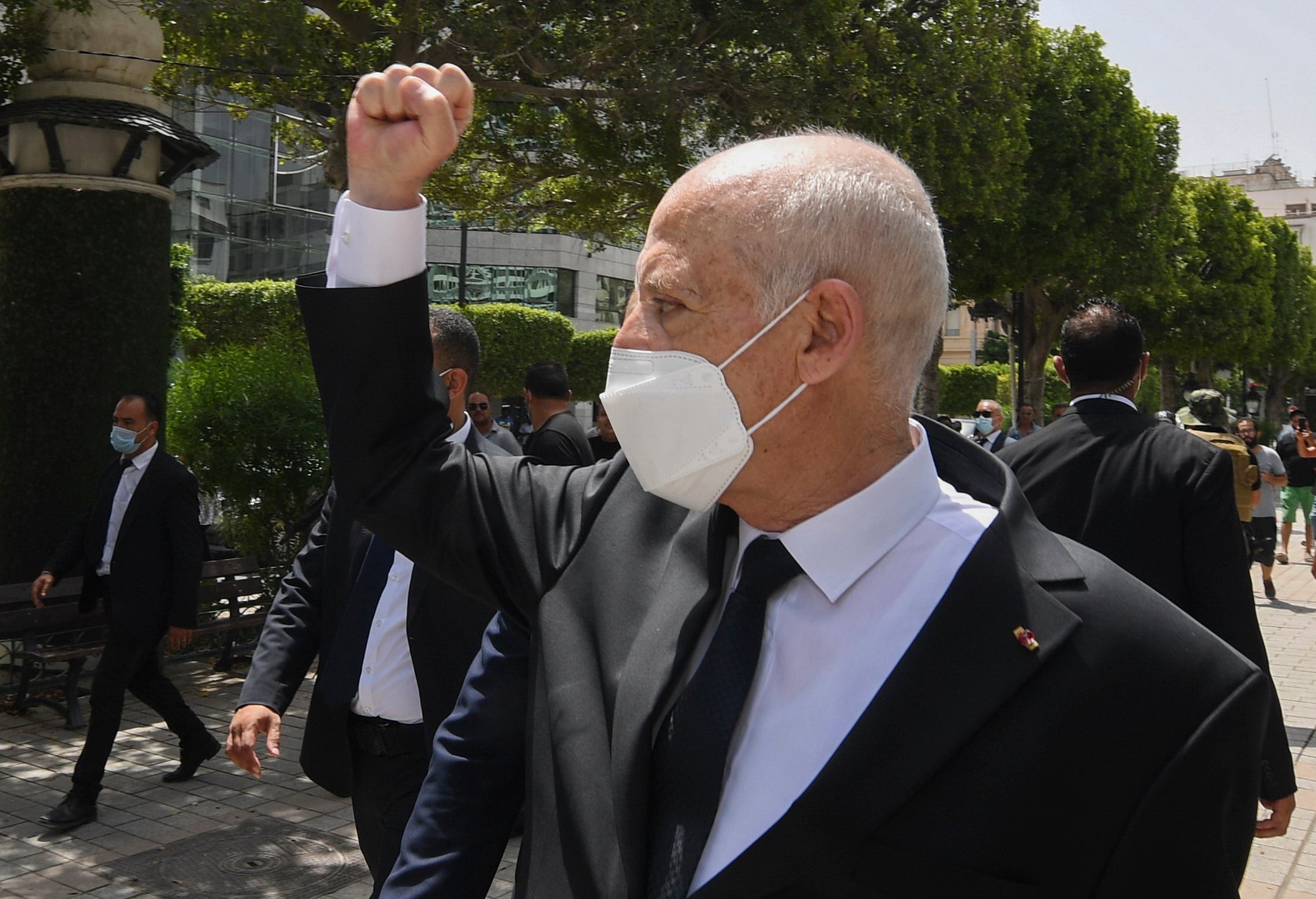Tunisia’s democracy is under threat – we cannot allow another slide into authoritarianism
For all those who support freedom, now is the time to stand with Tunisia


Six years ago, the Nobel Peace Prize was awarded to the Tunisian National Dialogue Quartet for its efforts, in collaboration with political forces, to build a pluralistic democracy in Tunisia.
It did so through dialogue and the establishment of an inclusive, peaceful political process that led to the adoption of a pioneering constitution of which all Tunisians can be proud. Elections and political pluralism in a climate of freedom, accountability and transparency have been the norm in Tunisia for a decade.
Today, that legacy is in severe danger. Two weeks ago, measures announced by President Kais Saied in Tunisia, the birthplace of the Arab Spring, has put our nascent, fragile journey towards democracy under threat. A decade ago, the people of Tunisia rose up and toppled a dictatorial regime, opening the door to a new era of freedom and democracy.
However, President Saied moved to suspend parliament for a month, dismiss the prime minister, assume all executive powers, and appoint himself prosecutor general. He ordered army tanks and soldiers to be posted around the parliament building, and when my colleagues and I – all of us democratically elected members of parliament – attempted to enter the parliament building, we were informed by the soldiers that they had orders to stop us.
For all those who support freedom, now is the time to stand with Tunisia’s democracy. We know how such power grabs usually end. We have already seen the storming of media offices, preventing journalists from reporting, the sacking of ministers and regional governors, the placing under house arrests of judges and political leaders, and the wholesale travel bans on judges, lawyers, politicians, businessmen and civil society activists.
Thankfully, bloodshed has so far been avoided. A sit-in in front of the parliamentary building on the Monday following President Saied’s announcement ensued, as supporters of parliament began to gather, I urged everyone to disperse over fears about potential confrontations that could result in loss of life. We asked for calm and vigilance, focusing our efforts on calling for an inclusive unconditional dialogue bringing together all political and social actors in order to end Tunisia’s stifling crisis.
Dialogue has helped us before in 2013 when we overcame a very serious political crisis. The president so far has rejected calls for dialogue but we hope that wisdom will prevail in the end.
Through dialogue we can reach an agreement on a way out of the crisis which should include: the non-renewal of the 30-day suspension of parliament and the nomination by the president of a prime minister and a government to be voted on by parliament. This is as well as agreeing economic and political reforms that the country needs and the future government should work on.
To have a legitimate government, the suspension of parliament should be revoked and parliament should be reconvened to vote on the new government. This way the democratic will of the Tunisians can be restored and the dangerous precedent of violating the constitution can be brought to an end.
Tunisians are right to be angry – the promise of the Tunisian revolution has not yet been realised after ten years of transition. Our economy has been weakened by a series of shocks, and has been further devastated by the effects of Covid-19. People are rightly worried about insecurity, their livelihoods and health, and they are frustrated by the in-fighting between leaders, who should be focusing on tackling these challenges.
But we cannot allow these challenges to lead to another dictatorship. Countless Tunisians have given their lives and sacrificed to build a democratic system that can protect freedoms and deliver social justice and dignity.
For 10 years, we have tried to build a democratic, prosperous country fit for the Tunisian people who courageously rose in the face of dictatorship in 2011 to demand their rights. Economies fluctuate and can be reformed – but freedoms, once taken away, are very hard to win back. What we have created is not perfect but it offers the best chance of a better Tunisia.
Now we look to Tunisians of all persuasions to stand up for their democracy and we call on President Kais Saied to pull back from the brink and engage in real, inclusive political dialogue and engagement.
Before the eyes of the international community, Tunisian democracy, a beacon of hope for the Arab world, is being extinguished by an all too familiar pattern of events. We cannot allow it to happen.
Rached Ghannouchi is the speaker of Tunisia's parliament and leader of the Ennahdha Party

Join our commenting forum
Join thought-provoking conversations, follow other Independent readers and see their replies